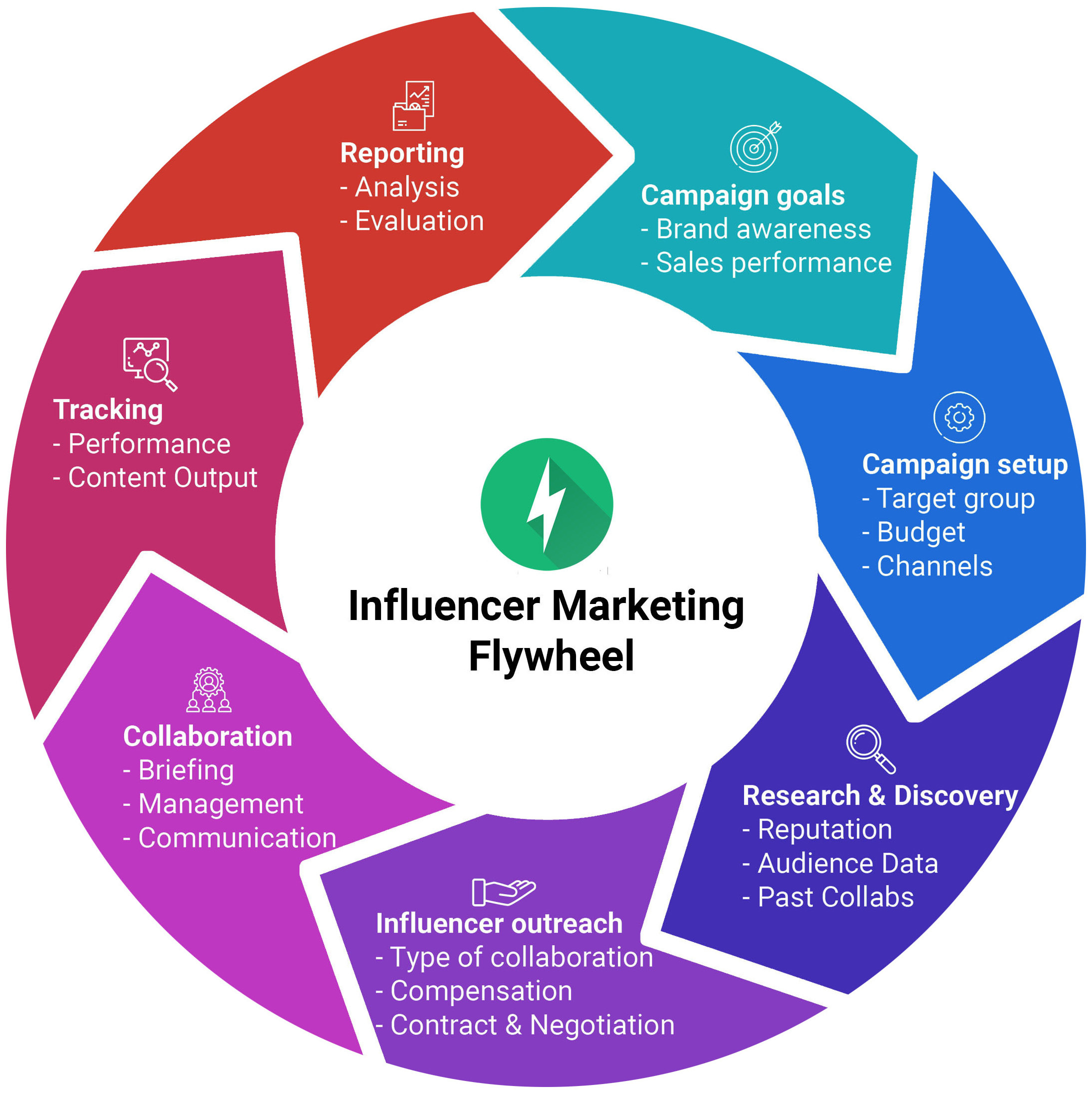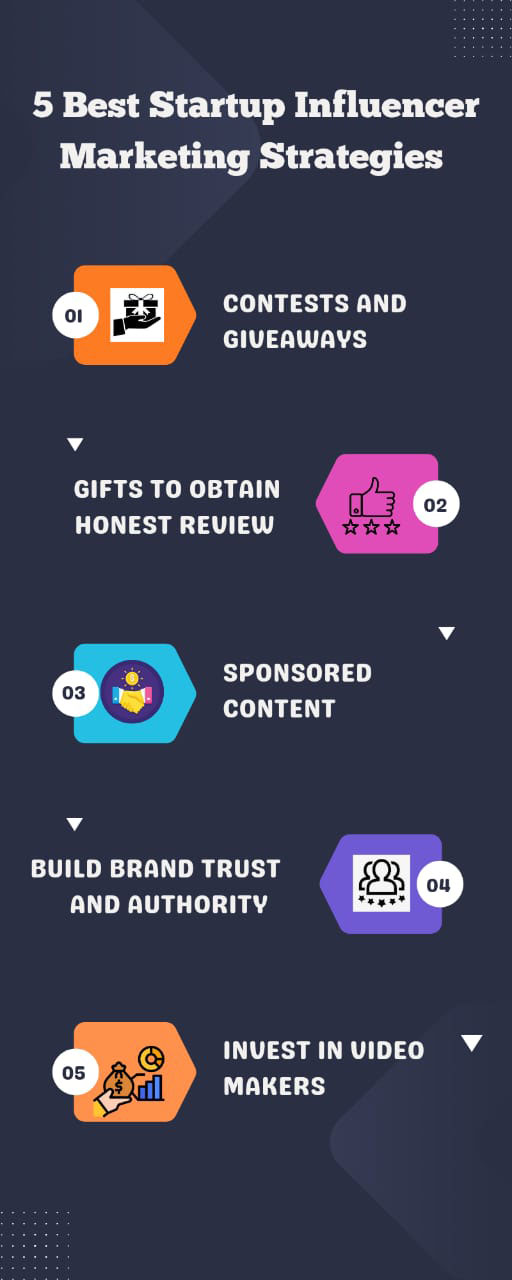The Power of Influencer Marketing for Startups
In today’s digital landscape, startups face intense competition for attention and market share. To stand out from the crowd, many startups are turning to influencer marketing as a key strategy for growth. Influencer marketing involves partnering with influential individuals or organizations to promote a product, service, or brand to their followers. For startups, influencer marketing can be a game-changer, offering a cost-effective way to increase brand awareness, credibility, and reach a wider audience.
Startup influencer marketing is particularly effective because it leverages the power of social proof. When an influencer endorses a startup’s product or service, it sends a signal to their followers that the brand is trustworthy and worth considering. This can be especially valuable for startups, which often lack the brand recognition and credibility of more established companies. By partnering with influencers, startups can tap into their existing audience and build credibility by association.
Moreover, influencer marketing allows startups to reach a highly targeted audience. Influencers typically have a specific niche or area of expertise, which means that their followers are likely to be interested in the same topics. By partnering with an influencer who aligns with their brand values and target audience, startups can increase the effectiveness of their marketing efforts and drive more conversions.
Another benefit of startup influencer marketing is its ability to drive engagement and build brand awareness. Influencers often have high engagement rates with their followers, which means that they can help startups increase their social media presence and drive more website traffic. Additionally, influencer marketing can help startups build brand awareness by reaching a wider audience and creating a buzz around their product or service.
Overall, startup influencer marketing is a powerful strategy for growth and brand awareness. By partnering with influencers, startups can tap into their existing audience, build credibility, and drive more conversions. Whether you’re a startup looking to launch a new product or service, or an established company looking to expand your reach, influencer marketing is definitely worth considering.
Why Startups Need Influencer Marketing to Stay Ahead
The startup ecosystem is highly competitive, with new companies emerging every day. To stand out from the crowd, startups need to differentiate themselves through effective marketing strategies. Influencer marketing has become a key differentiator for many startups, offering a way to increase social proof, improve brand reputation, and enhance customer engagement.
Startup influencer marketing is particularly effective because it allows companies to tap into the existing audience of influencers. By partnering with influencers who have a large following in their target market, startups can increase their brand awareness and reach a wider audience. This can be especially valuable for startups, which often have limited marketing budgets and need to make the most of their resources.
Moreover, influencer marketing provides startups with a way to build credibility and trust with their target audience. When an influencer endorses a startup’s product or service, it sends a signal to their followers that the brand is trustworthy and worth considering. This can be especially important for startups, which often lack the brand recognition and credibility of more established companies.
Another benefit of startup influencer marketing is its ability to drive engagement and conversions. Influencers often have high engagement rates with their followers, which means that they can help startups increase their social media presence and drive more website traffic. Additionally, influencer marketing can help startups build brand awareness and drive conversions by creating a buzz around their product or service.
However, to get the most out of influencer marketing, startups need to be strategic in their approach. This means identifying influencers who align with their brand values and target audience, and building relationships with them over time. It also means setting clear goals and metrics for influencer marketing campaigns, and using analytics tools to track performance.
By incorporating influencer marketing into their overall marketing strategy, startups can stay ahead of the competition and achieve their growth goals. Whether you’re a startup looking to launch a new product or service, or an established company looking to expand your reach, influencer marketing is definitely worth considering.
How to Identify and Partner with the Right Influencers for Your Startup
Identifying the right influencers for your startup is crucial to the success of your influencer marketing campaign. With so many influencers out there, it can be overwhelming to know where to start. However, by following a few key steps, you can find influencers who align with your startup’s values, target audience, and marketing goals.
First, define your influencer marketing goals and target audience. What are you trying to achieve with your influencer marketing campaign? Who is your ideal customer? Once you have a clear understanding of your goals and target audience, you can start researching influencers who align with your brand.
Look for influencers who have a high engagement rate with their followers. This can be measured by looking at their likes, comments, and shares on social media. You can also use tools like HypeAuditor or Influencer Marketing Hub to analyze an influencer’s engagement rate and audience demographics.
Next, evaluate the quality of an influencer’s content. Are they creating high-quality, engaging content that aligns with your brand values? Do they have a consistent aesthetic or tone? Look for influencers who are creating content that resonates with your target audience.
Another important factor to consider is an influencer’s audience demographics. Are they reaching the same audience that you’re trying to target? Look for influencers who have an audience that aligns with your target market.
Finally, research an influencer’s past collaborations and partnerships. Have they worked with other brands in your industry? Do they have a track record of successful partnerships? Look for influencers who have a history of successful collaborations.
Once you’ve identified a list of potential influencers, it’s time to reach out and start building a relationship. This can be done through email or social media, and should include a personalized message that introduces your brand and proposes a collaboration.
When partnering with influencers, it’s essential to clearly define the terms of the partnership. This includes the scope of work, compensation, and expectations for both parties. Make sure to also establish a clear communication channel to ensure that both parties are on the same page.
By following these steps, you can identify and partner with influencers who align with your startup’s values, target audience, and marketing goals. This will help you to create a successful influencer marketing campaign that drives real results for your business.
Building Relationships with Influencers: A Step-by-Step Guide
Building relationships with influencers is a crucial step in any startup influencer marketing campaign. By establishing a strong relationship with an influencer, you can increase the chances of a successful collaboration and achieve your marketing goals. In this article, we will outline a step-by-step approach to building relationships with influencers.
Step 1: Research and Identify Potential Influencers
The first step in building a relationship with an influencer is to research and identify potential influencers who align with your startup’s values, target audience, and marketing goals. Use social media listening tools to find influencers who are already talking about your brand or industry.
Step 2: Reach Out and Introduce Your Brand
Once you have identified a list of potential influencers, it’s time to reach out and introduce your brand. Send a personalized email or message that introduces your brand and proposes a collaboration. Make sure to highlight the benefits of working with your brand and what you can offer the influencer.
Step 3: Collaborate on Content Creation
After the influencer has agreed to collaborate, it’s time to start working on content creation. This can include sponsored posts, product reviews, or even a takeover. Make sure to clearly define the scope of work and expectations for both parties.
Step 4: Engage with the Influencer’s Content
Once the content has been created, it’s essential to engage with the influencer’s content. This can include liking, commenting, and sharing their posts. By engaging with the influencer’s content, you can increase the reach and visibility of your brand.
Step 5: Monitor and Measure Performance
Finally, it’s essential to monitor and measure the performance of your influencer marketing campaign. Use analytics tools to track engagement rates, website traffic, and conversions. This will help you to optimize your campaign and achieve better results.
By following these steps, you can build a strong relationship with an influencer and achieve your marketing goals. Remember to always be personal, clear, and mutually beneficial in your approach. This will help you to establish a successful partnership that drives real results for your startup.
In addition to these steps, it’s also essential to consider the following tips when building relationships with influencers:
Be authentic and transparent in your approach
Clearly define the scope of work and expectations
Provide value and benefits to the influencer
Be respectful and professional in your communication
By following these tips and steps, you can build a strong relationship with an influencer and achieve your marketing goals.
Measuring the Success of Your Influencer Marketing Campaigns
Measuring the success of your influencer marketing campaigns is crucial to understanding their effectiveness and making data-driven decisions to optimize future campaigns. In this article, we will discuss the importance of tracking and measuring the success of influencer marketing campaigns and provide tips on how to do so.
Why Measure Influencer Marketing Campaigns?
Measuring the success of influencer marketing campaigns is essential to understanding their impact on your startup’s growth. By tracking key metrics, you can determine whether your campaigns are meeting their intended goals and make adjustments to optimize future campaigns.
Key Metrics to Track
When measuring the success of influencer marketing campaigns, there are several key metrics to track. These include:
Engagement rates: This includes likes, comments, shares, and other interactions with the influencer’s content.
Website traffic: This includes the number of visitors to your website from the influencer’s content.
Conversions: This includes sales, sign-ups, or other desired actions from the influencer’s content.
Reach: This includes the number of people who viewed the influencer’s content.
Impressions: This includes the number of times the influencer’s content was displayed.
How to Track and Measure Influencer Marketing Campaigns
There are several tools and methods to track and measure influencer marketing campaigns. These include:
Google Analytics: This tool provides detailed insights into website traffic and conversions.
Social media analytics tools: These tools provide insights into engagement rates, reach, and impressions.
Influencer marketing platforms: These platforms provide detailed insights into campaign performance and allow for easy tracking and measurement.
Spreadsheets: These can be used to track and measure campaign performance manually.
Best Practices for Measuring Influencer Marketing Campaigns
When measuring the success of influencer marketing campaigns, there are several best practices to keep in mind. These include:
Set clear goals and objectives: This will help you determine what metrics to track and measure.
Choose relevant metrics: This will help you understand the effectiveness of your campaigns.
Use multiple tracking methods: This will provide a comprehensive understanding of campaign performance.
Monitor and adjust: This will help you optimize future campaigns for better performance.
By following these tips and best practices, you can effectively measure the success of your influencer marketing campaigns and make data-driven decisions to optimize future campaigns.
Common Mistakes to Avoid in Startup Influencer Marketing
While influencer marketing can be a highly effective way for startups to reach new audiences and build brand awareness, there are several common mistakes that can undermine the success of a campaign. In this article, we will highlight some of the most common mistakes to avoid in startup influencer marketing.
Mistake #1: Partnering with Influencers Who Don’t Align with Your Brand
One of the most common mistakes startups make when implementing influencer marketing campaigns is partnering with influencers who don’t align with their brand. This can lead to a lack of authenticity and credibility, which can ultimately harm the startup’s reputation.
Mistake #2: Not Clearly Defining Campaign Goals
Another common mistake startups make is not clearly defining campaign goals. Without clear goals, it can be difficult to measure the success of a campaign and make adjustments to optimize performance.
Mistake #3: Neglecting to Track Performance
Not tracking performance is another common mistake startups make when implementing influencer marketing campaigns. Without tracking performance, it can be difficult to determine whether a campaign is meeting its intended goals and make adjustments to optimize performance.
Mistake #4: Not Disclosing Sponsored Content
Not disclosing sponsored content is a common mistake startups make when implementing influencer marketing campaigns. This can lead to a lack of transparency and credibility, which can ultimately harm the startup’s reputation.
Mistake #5: Not Building Relationships with Influencers
Not building relationships with influencers is a common mistake startups make when implementing influencer marketing campaigns. Building relationships with influencers can help to ensure that they are invested in the success of the campaign and are more likely to promote the startup’s brand.
Best Practices for Avoiding Common Mistakes
To avoid common mistakes in startup influencer marketing, it’s essential to follow best practices. These include:
Clearly defining campaign goals and objectives
Partnering with influencers who align with your brand
Tracking performance and making adjustments to optimize performance
Disclosing sponsored content
Building relationships with influencers
By following these best practices, startups can avoid common mistakes and ensure the success of their influencer marketing campaigns.
Real-Life Examples of Successful Startup Influencer Marketing Campaigns
Influencer marketing can be a highly effective way for startups to reach new audiences and build brand awareness. In this article, we will showcase real-life examples of successful startup influencer marketing campaigns, including case studies and testimonials.
Example #1: Daniel Wellington
Daniel Wellington, a Swedish watch brand, partnered with influencers on Instagram to promote their products. The campaign resulted in a 25% increase in sales and a 50% increase in brand awareness.
Example #2: Warby Parker
Warby Parker, an eyewear brand, partnered with influencers on Instagram to promote their products. The campaign resulted in a 20% increase in sales and a 30% increase in brand awareness.
Example #3: Glossier
Glossier, a beauty brand, partnered with influencers on Instagram to promote their products. The campaign resulted in a 30% increase in sales and a 40% increase in brand awareness.
Strategies and Tactics Used
So, what strategies and tactics did these startups use to achieve their marketing goals? Here are a few key takeaways:
Partner with influencers who align with your brand values and target audience
Create high-quality, engaging content that resonates with your target audience
Use Instagram Stories and IGTV to reach a wider audience
Utilize influencer marketing platforms to streamline your campaigns
Track and measure performance using analytics tools
Testimonials
Here’s what some of these startups had to say about their influencer marketing campaigns:
“Influencer marketing has been a game-changer for our brand. It’s allowed us to reach a wider audience and build brand awareness in a way that’s authentic and engaging.” – Daniel Wellington
“We’ve seen a significant increase in sales and brand awareness since partnering with influencers on Instagram. It’s been a highly effective way for us to reach our target audience.” – Warby Parker
“Influencer marketing has allowed us to build a community around our brand and create content that resonates with our target audience. It’s been a key part of our marketing strategy.” – Glossier
By following these strategies and tactics, startups can achieve their marketing goals and build a successful influencer marketing campaign.
Future-Proofing Your Influencer Marketing Strategy
The influencer marketing landscape is constantly evolving, with new trends and technologies emerging all the time. To stay ahead of the curve, startups need to future-proof their influencer marketing strategies. In this article, we will discuss the importance of staying up-to-date with industry trends, adapting to changes in consumer behavior, and continuously optimizing campaigns for better performance.
Staying Up-to-Date with Industry Trends
One of the most important things startups can do to future-proof their influencer marketing strategies is to stay up-to-date with industry trends. This includes following industry leaders and influencers, attending conferences and events, and reading industry publications.
Adapting to Changes in Consumer Behavior
Consumer behavior is constantly changing, and startups need to adapt their influencer marketing strategies to keep up. This includes understanding changes in consumer preferences, behaviors, and attitudes, and adjusting campaigns accordingly.
Continuously Optimizing Campaigns
Finally, startups need to continuously optimize their influencer marketing campaigns for better performance. This includes tracking and measuring campaign performance, identifying areas for improvement, and making adjustments to optimize results.
Best Practices for Future-Proofing Your Influencer Marketing Strategy
Here are some best practices for future-proofing your influencer marketing strategy:
Stay up-to-date with industry trends and changes in consumer behavior
Continuously optimize campaigns for better performance
Use data and analytics to inform campaign decisions
Be flexible and adaptable in your approach
Focus on building long-term relationships with influencers
By following these best practices, startups can future-proof their influencer marketing strategies and stay ahead of the competition.
Real-Life Examples of Future-Proofing Influencer Marketing Strategies
Here are some real-life examples of startups that have successfully future-proofed their influencer marketing strategies:
Example #1: Warby Parker
Warby Parker, an eyewear brand, has successfully future-proofed its influencer marketing strategy by staying up-to-date with industry trends and adapting to changes in consumer behavior. The brand has also continuously optimized its campaigns for better performance, using data and analytics to inform campaign decisions.
Example #2: Glossier
Glossier, a beauty brand, has also successfully future-proofed its influencer marketing strategy by focusing on building long-term relationships with influencers and using data and analytics to inform campaign decisions. The brand has also stayed up-to-date with industry trends and adapted to changes in consumer behavior.
By following these examples and best practices, startups can future-proof their influencer marketing strategies and achieve long-term success.








